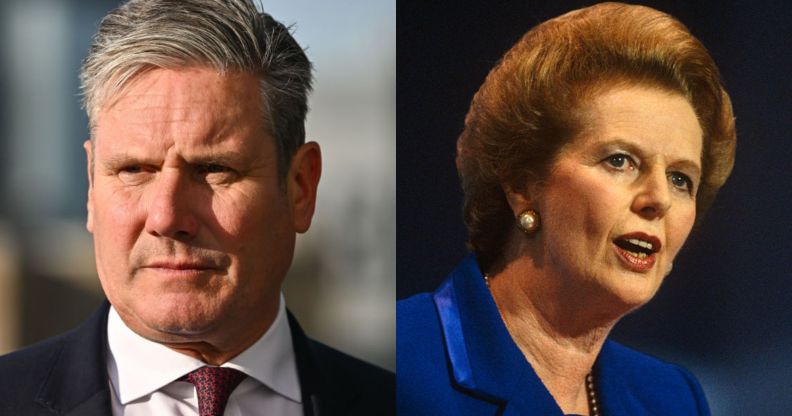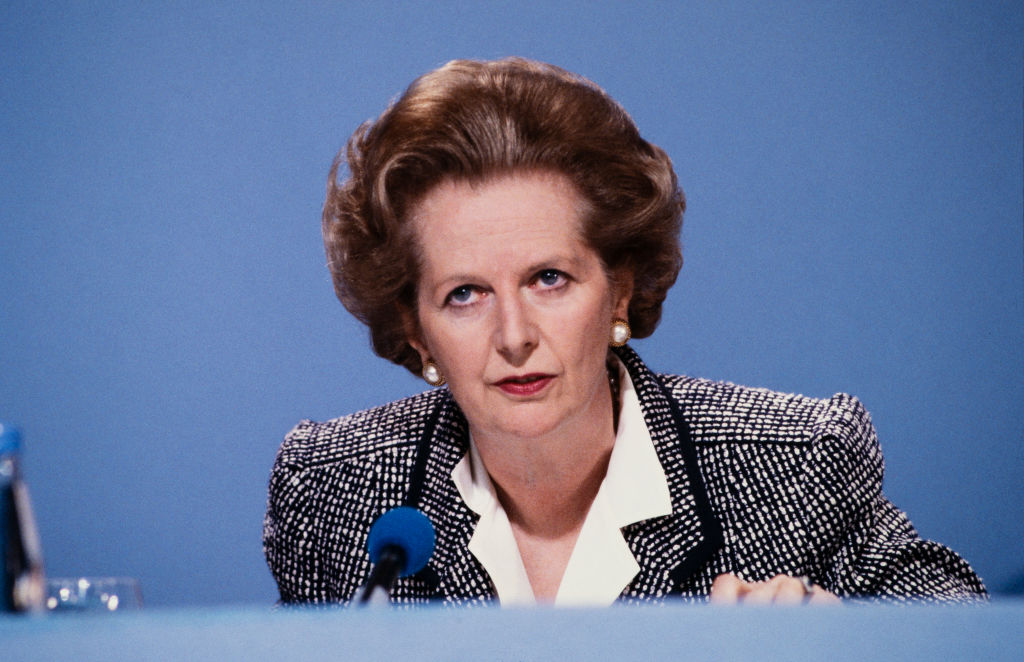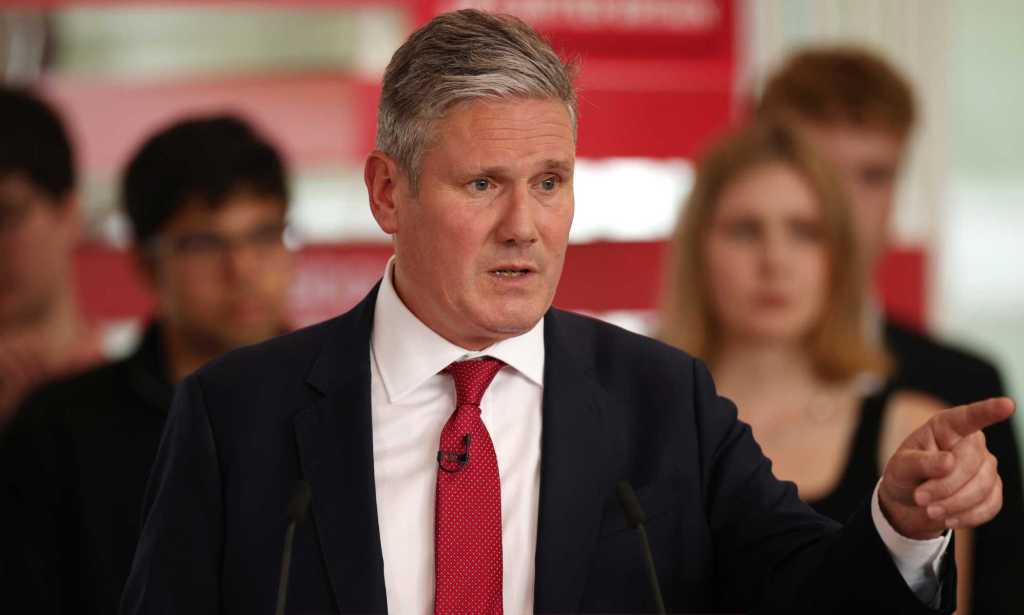Margaret Thatcher was a notorious homophobe – so why is Keir Starmer suddenly her biggest fan?

Keir Starmer is trying to court right-leaning voters with his praise for Margaret Thatcher – but he might also alienate left-wing voters in the process. (Getty)
Margaret Thatcher was a homophobe who made it clear that she not only despised LGBTQ+ people, but saw their mere existence as a threat to young people – so why is Keir Starmer suddenly praising her?
Of all past British prime ministers, Thatcher may be the most reviled. There are few sections of society she failed to alienate during her reign of terror – striking workers, parents, the working classes, and – of course – queer people.
Few who were alive in the late ‘80s – when the AIDS epidemic had pushed anti-gay hate to new levels – could forget Thatcher’s Tory conference speech where she said children were being taught that they had an “inalienable right to be gay”.
“All of those children are being cheated of a sound start in life. Yes, cheated,” Thatcher said.
It was during her time as prime minister that Section 28 – an amendment to the Local Government Act 1988 – came into force, banning local authorities and schools from promoting homosexuality.

Some have tried to reclaim Thatcher as some kind of gay icon, but what gay icon could stand over a party that weaponised anti-LGBTQ+ sentiment in a desperate bid to win votes in the lead up to the 1987 general election?
Given all that, you might wonder why Keir Starmer is suddenly her biggest fan.
Keir Starmer is cosying up to right-leaning voters with Margaret Thatcher comments
That was the question many Labour voters were left asking when Starmer penned an op-ed apparently designed to win over right-wing voters in The Telegraph on Sunday (3 December).
“Margaret Thatcher sought to drag Britain out of its stupor by setting loose our natural entrepreneurialism,” Starmer wrote before insisting that Labour has “changed dramatically” over the last three years.
Labour is now, Starmer says, focused on “the concerns and dreams of ordinary British people”. He’s less concerned about the concerns of asylum seekers, apparently – he says small boat crossings are a matter “of serious public concern” and argues that increased migration represents a failure on the part of the Tories.
It doesn’t take a political expert to understand what Starmer is trying to do. Labour is now trying to solidify its base ahead of the next general election by hoovering up stray centrist voters, and maybe even a few right-leaning ones too.
The only problem? His praise of Thatcher may well alienate the many people who view her premiership as one of Britain’s most brutal chapters.

One LGBTQ+ Labour member said Starmer’s comments are a “slap in the face” to those who have stuck by the party through thick and thin.
“Starmer, in his praise for one of the most damaging prime ministers of the 20th century, pays little attention to what her premiership represents to progressive young people – especially those who grew up in the shadow of the abhorrent Section 28,” they told PinkNews.
“Especially in the context of the current crisis for trans people in Britain, it’s a slap in the face for those of us who want to consign prejudice to the past, not bring it screaming back to life.”
But it won’t just be young progressives Starmer will have alienated with his pro-Thatcher comments – there will also be many who lived through the harsh austerity implemented during her time as prime minister that may now think twice about voting Labour at the next election.
How did this story make you feel?

